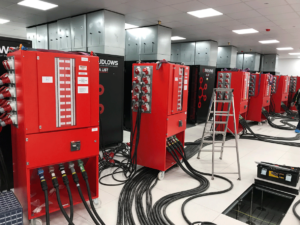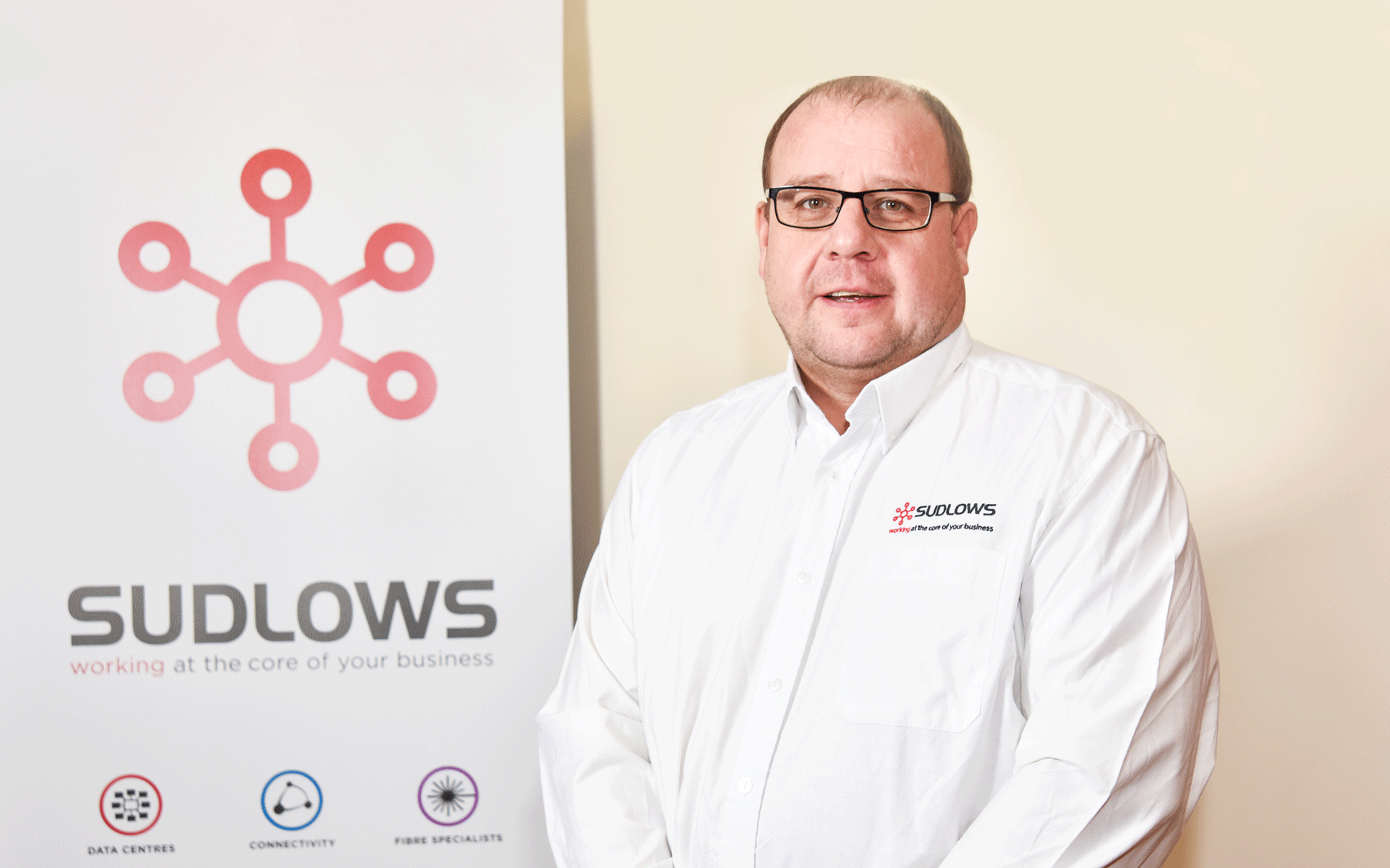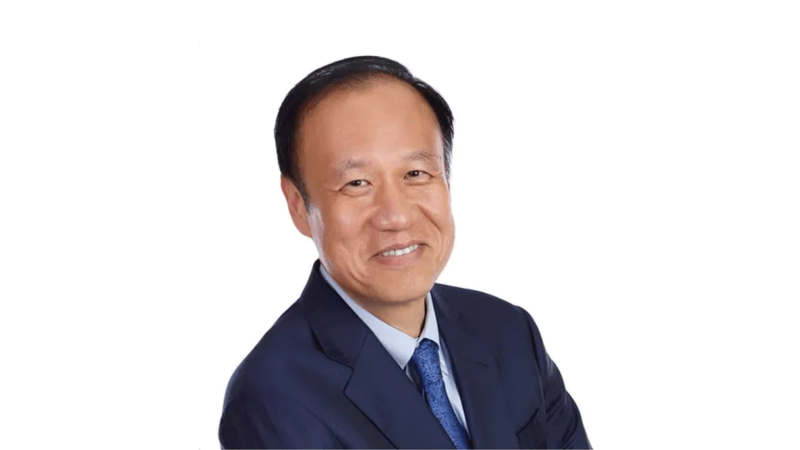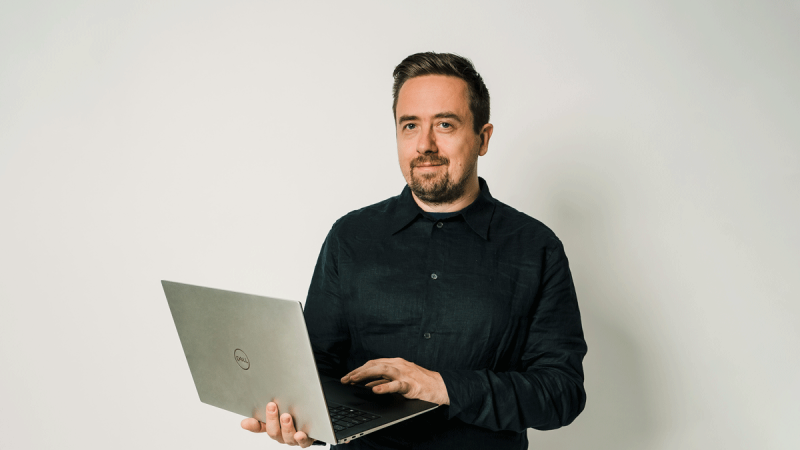Sudlows’ history goes back to 1912 when it was founded as an electrical contractor owned and operated by its founder, Albert Sudlow. Times change, and by the 1980s the company had moved into the data cabling sector, predominantly driven by BT severing its ties from the Post Office, and so Sudlows began to specialise in telecommunication.
The company’s journey continued into 2006 when Sudlows underwent a management buyout led by John Collins and Christopher Dummett. One of their initial hires was Andy Hirst to head the electrical division within Sudlows and he later become the company’s Managing Director of Critical Infrastructure.
“When I came on board it was clear the focus needed to concentrate on data centres and mission-critical environments,” Hirst says.
It marked the beginning of a period of dramatic growth for the company. Hirst joined a firm that had around 40 employees and turned over around £2 million. Today he helps to lead a company that employs 250 people in the UK alone, with around 500 employees worldwide, and a turnover in the region of £70 million plus. This year, the number is expected to grow beyond £100 million.
Sudlows’ success in the UK attracted attention from further afield.
“In 2015 companies around the world were asking for our services,” Hirst recalls. “We delivered one-off projects in countries including Turkey and Saudi Arabia, and we got to the stage where we decided to look at what opportunities there were outside the UK. I spent time in the Middle East investigating this option and there was enough business to justify opening an office there. That region now has around 80 design engineers. We then got asked by a client to support them in Mumbai, so we opened an office there as well. By 2019, outside the UK we had two offices, one in Dubai and one in Mumbai where we also have around 80 design engineers working.”
Over the last three years, Sudlows has established a further presence in Ireland, Singapore, and South Africa, building on its reputation across these regions. In the UK it designs, builds, and commissions projects for mission-critical environments. It also offers consultancy and professional services.
“We have a company of high achievers demonstrated by the multiple awards for individual engineers and project works,” Hirst says.
 Built on Learning
Built on Learning
But wherever Sudlows is operating in the world, it trades on a wealth of vital knowledge and experience.
“We give the client confidence in our expertise. All organisations have a data centre or mission critical facilities in one form or another such as banking, telecommunications, even retail and universities, to list just a few” Hirst tells us. “If any of these facilities fail, it causes massive issues within that business. It can damage brand reputation, cause financial and commercial losses, and ultimately close businesses down. It is absolutely crucial that we give the client the confidence that anything we work on will have 100% up-time. We can only do that using the experience of our highly qualified engineers and staff.”
To acquire that expertise, Sudlows hires industry-respected engineers and staff. The company sources people with experience but also relies heavily on strong relationships with local universities and colleges.
“We are working with local education providers such as Oldham College, Salford University and Warrington UTC,” Hirst says. “We are working with various other colleges, trying to source the right calibre of graduates and put them through rigorous internal training.”
These recruits are put alongside experienced engineers. Currently, there are only a few recognised certifications for data centres, but these can’t offer the experience that is required before being able to work in live facilities.
“We put them through the training we can, but most of what they learn is through being upskilled by the engineers we have,” Hirst says.
That notion of upskilling and continuous improvement is core to Sudlows’ way of working, but Hirst does not just preach this, he lives it.
“I invest a lot of my personal time,” he says. “I have just completed a master’s degree in data centre design and leadership at Anglia Ruskin, and I am partway through a master’s degree in sustainability. It is important to demonstrate that developing yourself does not stop. I work with young engineers and support their career paths, as an IET mentor I help them gain incorporated or chartered status. It is a big passion of mine to develop young engineers and demonstrates that even if you are 56, you shouldn’t stop learning – or you soon fall behind with the equipment being developed and innovation.”
Of course, the thing about investing heavily in your business’ knowledge base is that it creates an appealing prospect for other businesses looking to recruit.
“Because data centres are mission critical, everyone knows everyone. People are always looking at the talent you have and trying to gain their skillsets,” Hirst acknowledges.
Sudlows’ culture is its secret weapon against those recruiters.
“Sudlows works as a team. At the office, everyone gets on with everyone, and we continually try to upskill and promote internally. We make it attractive to employees to remain with us,” Hirst explains. “But it is tough because we are seen as experts in our field and therefore the team is sought after. However, if an employee is enticed away, it is usually for one of the large organisations such as Google.” Hirst points out.
The Next Challenge
 Wherever you work in the industry, some things remain the same. Data centres are notoriously power-hungry, and the biggest challenge in the industry right now is to solve that.
Wherever you work in the industry, some things remain the same. Data centres are notoriously power-hungry, and the biggest challenge in the industry right now is to solve that.
“Ensuring sustainability and reducing carbon footprints is a big priority,” Hirst says. “We are lucky in this industry, a lot of technology is continuously being developed. We invest a lot in innovation and investigating the latest technologies. We go to manufacturing plants and factories and look at how the latest technologies can improve these efficiencies. The biggest challenge is ensuring that we keep offering the best and latest solutions.”
To do that, Sudlows keeps its finger on the global pulse of the sector.
“Sudlows advise and specify the correct solution for our clients, and therefore carry out a lot of due diligence, taking us to facilities in the UK, across Europe, and further regions. We go to the factories and see what they have got, with a dedicated team looking at sustainability and improved efficiencies,” Hirst points out. “But it is time consuming and requires above and beyond investment to keep up with those technologies.”
But Hirst’s commitment to continuous learning and improvement is reflected across the entire company.
“Our plans for the future in the Middle East and Europe are looking at not just offering professional services, but potential construction of facilities outside of the UK,” Hirst says. “We are looking at continually improving the quality of what we offer and ensuring that sustainability is a high priority, not only within Sudlows but in the offering we give our customers.”







